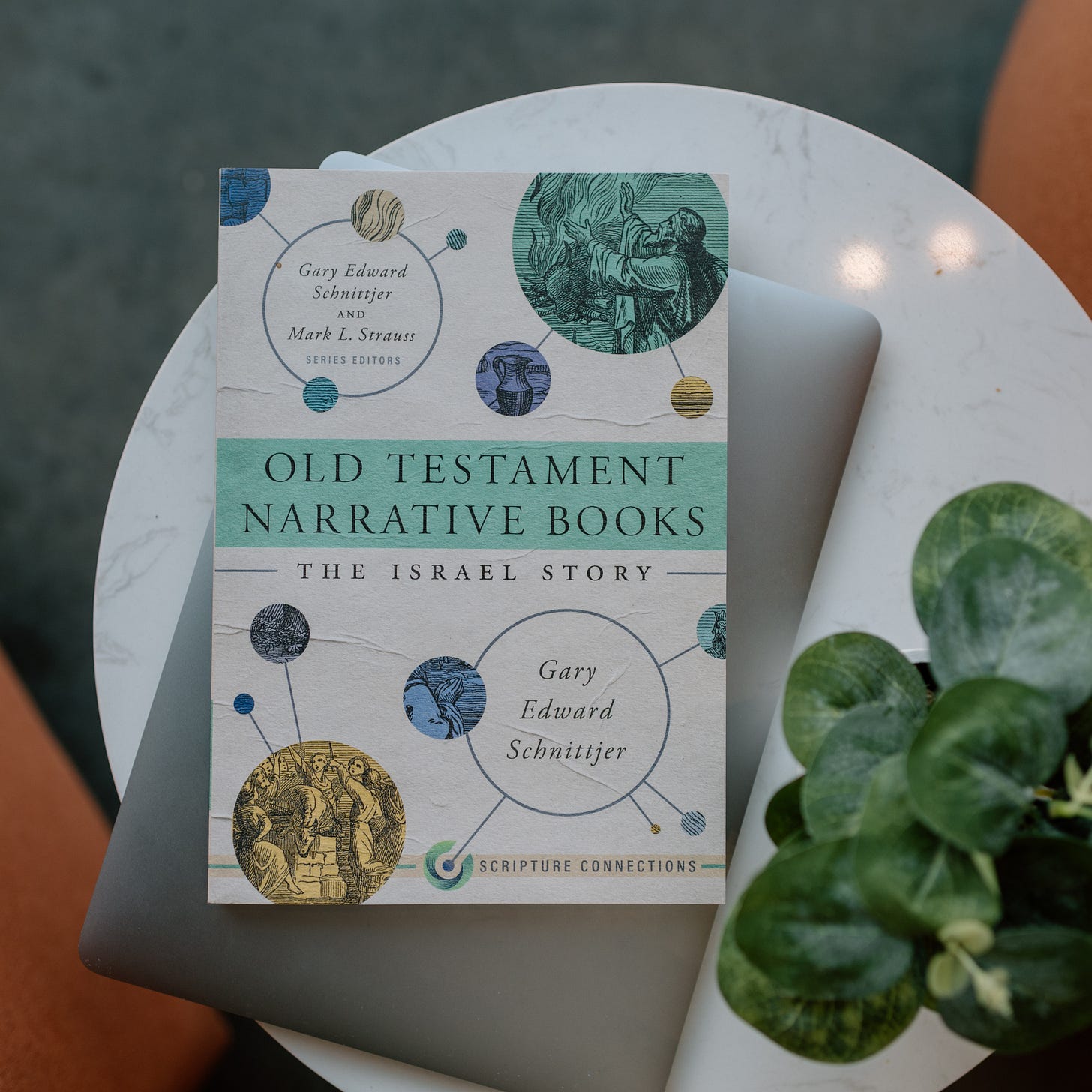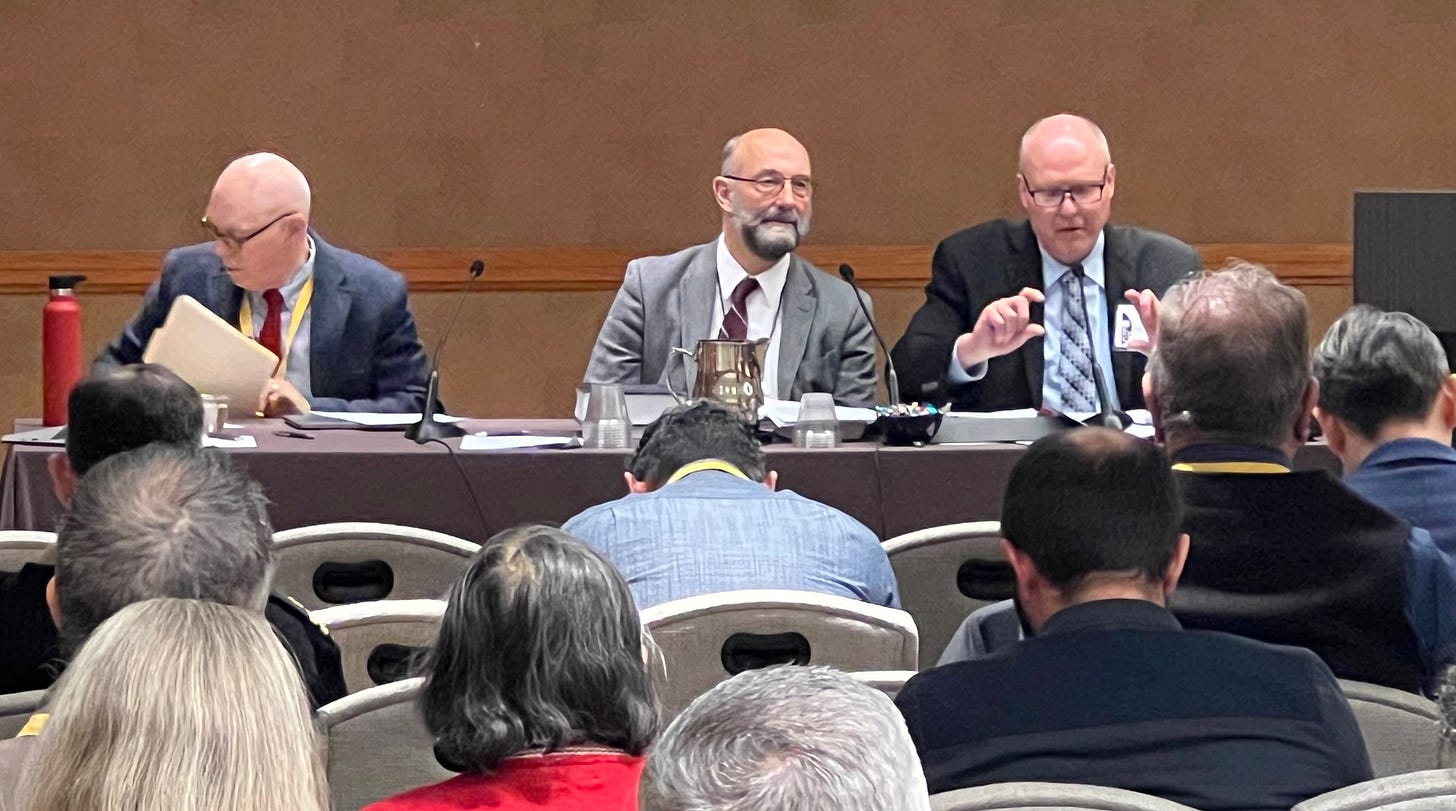Eleven Days of Scripture Study that Changed Everything . . . until they didn’t change anything
Commentary on Ezra-Nehemiah
Second-Tuesday Feature
This month next year is the scheduled release of my exceptionally long-time project: Ezra-Nehemiah in the Baker Commentary on the Old Testament. It will join volumes by John Goldingay, John Goldingay, Mark Awabdy, Gordon McConville, and of course John Goldingay.
If you’ve spent any amount of time with me over this past decade+ you are hoping when it comes out maybe, just maybe, I’ll talk about something other than Ezra-Nehemiah. Good luck with that!
This is the first installment of posts looking forward to the release of this commentary. We need to begin with the end. In a large number of cases, the ending of a biblical writing shows us the point. That’s certainly the case with Ezra-Nehemiah.
But we need to pause, just for a moment, and acknowledge the eleven days of Scripture study that directly set up the ending.
Eleven Days Like No Other
Something unprecedented and unrepeated happens in Nehemiah 8‒10. There has never been anything like it at any other time in history. The only thing close is during the early days of the way after Pentecost in Acts. The people in Nehemiah 8‒10 collectively study Scripture for eleven days. These eleven days of Scripture study lead to numerous renewals. Notice the eleven days:
Day one of the seventh month: When the seventh month arrived, and the Israelites were in their towns, 8:1all the people gathered as one person in the plaza before the Water Gate. And they told Ezra the scribe to bring the scroll of the Torah of Moses which Yahweh had commanded Israel. (Neh 7:73b‒8:1, translation mine)
Day two: On the second day the heads of ancestral houses of all the people, the priests, and the Levites, gathered themselves to Ezra the scribe in order to comprehend the words of the Torah. (Neh 8:13, translation mine)
Days fifteen to twenty-two: He [Ezra] read from the scroll of the Torah of God day by day from the first day until the last day. They kept the festival [of Tabernacles] seven days and on the eighth there was an assembly according to the pronouncement. (Neh 8:18, translation mine)
Day twenty-four: They stood up in their places and they read from the book of the Torah of Yahweh their God a quarter of the day, and for a quarter confessing and bowing before Yahweh their God. (Neh 9:3, translation mine)
The outcomes of these eleven days of Scripture study are among the high points of all of Scripture. Here’s what the Scripture study results in:
Collective worship renewal (Neh 8)
Collective prayer and faith renewal (Neh 9)
Collective promise of obedience (Neh 10)
In months to come, we’ll circle back to these exciting outcomes in the second-Tuesday feature posts of Carpenter’s Student. The importance of these renewals for Christians today is only matched by their neglect by Christians today.
First we need to see that these exciting eleven days of Scripture study lead up to failure. Then we’ll have what we need to dig into the eleven days.
If you haven’t read it for a while, I suggest listening to the passage. Here’s a link to Nehemiah 8‒10 in the NIV dramatized audio files.
In any case, watch your inbox. We’ll be back to Nehemiah 8‒10.
Beware of Failure—Knowing Ourselves
Here’s an audio-file of the bad ending of Ezra-Nehemiah. It shows how the eleven days of Scripture study come to nothing.
What did the people promise to do?
Not neglect house of God (Neh 10:39)
Honor sabbath (10:31)
Not enter apostasy marriages (10:30)
Provide wood to ever worship Yahweh (10:34)
What did they do?
Neglect of house of God (Neh 13:11)
Dishonor sabbath (13:15‒22)
Enter to apostasy marriages (13:23‒28)
Lack of wood (13:31)
I love Nehemiah. He’s the first modern American. Okay, maybe not technically. But he’s got the American ways down as much as anyone in Scripture. He says what he thinks. Throughout the entire book, Nehemiah doesn’t ask for help. He doesn’t have committee meetings. He doesn’t need anyone’s opinions.
Nehemiah does what today’s church leaders secretly wish to do. He tosses out of the temple the stuff that belongs to the enemy of God’s people. He lectures at the affluent leaders. He threatens unbelievers who try to get God’s people to disobey. He chases away the son of the high priest for marrying into the family of a high enemy of God’s people.
Nehemiah’s yells at rebels. He pummels them. He rips out their hair.
What’s not to love?!
But all of the excitement with Nehemiah himself cannot stop the nagging feeling in our gut as we consider Neh 13. There’s two issues: Nehemiah is alone and Nehemiah’s prayer life.
Nehemiah Alone
The entire book of Ezra-Nehemiah up to this point has been a collective story. Tamara Cohn Eskenazi’s dissertation back in the day (In an Age of Prose) helped us to see that the Ezra-Nehemiah narrative is dominated by its collective emphasis.
Let’s just take the mass divorces, for the moment. The Yahwistic Judeans who return to Judah are serial mass divorcers. To stem the tsunami of rebellion, Ezra “urges” the people to get right with God by a mass divorce in Ezra 9‒10. There is a long list of broken-up marriages starting with the high priest Joshua’s family—this is the Joshua who returns from exile with Zerubbabel—in Ezra 10:18. This tells us the rebellion of the leaders and the people by entering apostasy marriages goes back to the very beginning of the return from exile. As exciting as the mass divorce is, it doesn’t work.
Twelve years later the people need another mass divorce to get right with God. Again. That’s what they do first thing in the morning in Neh 9:2 on the eleventh climactic day of their collective Scripture study.
Then there’s Neh 13:1‒3. Is that a separate mass divorce? Or, does it refer to the mass divorce in Neh 9:2? Unclear. In either case, it still doesn’t fix the problem.
Twelve years after the mass divorce of Neh 9:2 apostasy marriages have again overrun Jerusalem in Neh 13:23‒28. Nehemiah is livid. He can’t believe the children cannot even speak the language of Judah. They speak the language of the apostasy wives from Ashdod and elsewhere. Readers often say, “So what? Who cares what language they speak.” Scholars who focus on Nehemiah’s interest in preserving traditional Jewish culture miss the point.
Torah calls upon Yahweh’s people to instruct the up-and-coming generation with Yahweh’s will everywhere and all the time in Deut 6:7 and 11:19. The children of Jerusalem cannot speak the language of Judah because the wives have not submitted to Yahweh’s covenant. The unbelieving wives have not married in. The husbands that Nehemiah beats up have married out.
(Are there only apostasy wives? What about apostasy husbands? You’ll need to see my commentary for that. For the moment, please see the apostasy husbands of the unnamed daughters of Shekaniah and Meshullam in Neh 6:18.)
That’s why Nehemiah shouts about acting like Solomon, but not the good part of Solomon. The Hebrew of Neh 13:26‒27 uses syntactical literary signals that emphasize Nehemiah’s shrill tone. He is screaming at the men whose hair he holds in his fists having ripped it out of their heads.
So, while there’s a lot to love about Nehemiah’s violent actions and speech, something is missing. Everyone else other than Nehemiah. The twenty-two previous chapters of the narrative emphasize the entire people seeking reform. They messed up a lot, that’s for sure. But they worked together to get right with God one more time.
But in Neh 13 the collective effort to serve and worship Yahweh is over. No one is interested any more. Except Nehemiah.
Nehemiah’s Prayer Life
Nehemiah never sounds better than he does in Neh 1. There he prayers in first person plural. He confesses his sins and puts himself as part of the collective.
I said, “Please! Yahweh God of heaven, the great and fear-inspiring God, who keeps the covenant and maintains loyalty to those who love him and keep his commandments. 6Let your ear be attentive and let your eyes be open to hear the prayer of your servant that I am praying before you today, day and night concerning the Israelites your servants, confessing the sins of the people of Israel, which we have sinned against you. I and the house of my father have sinned. 7We have acted with great corruption against you. We have not kept the commands, the statutes, and the judgments that you commanded Moses your servant. 8Remember! the word you commanded Moses your servant . . .” (Neh 1:5‒8a translation mine, emphasis added)
There’s more to it, but for the moment listen to how different Nehemiah sounds thirteen years later when he is the lone reformer of Jerusalem.
Remember me, O my God, concerning this, and do not blot out my faithful works that I have done for the house of my God and for his service. (Neh 13:14 translation mine, emphasis added)
Remember this also in my favor, O my God, and spare me according to the greatness of your steadfast love. (Neh 13:22b translation mine, emphasis added)
Remember me, O my God, for good. (Neh 13:31b translation mine, emphasis added)
I’ll say it again. I love Nehemiah. But in a book dominated by the collective commitment of Yahweh’s people to the restoration, the prayers of Nehemiah in Neh 13 underscore the bad ending of this book.
Ezra-Nehemiah ends with the people back, the temple rebuilt, the walls around Jerusalem rebuilt as well as the Torah study of the people, their prayer, and their promises to obey Torah. All of that is in the past. The present is Nehemiah alone screaming at and hitting rebels, and praying for himself alone.
The restoration has failed. No one thinks Nehemiah by himself alone is cleaning up Jerusalem in a way that will get the job done once and for all. No, that’s not the trajectory of Ezra Nehemiah.
When we look at Jerusalem in Neh 13, it’s like the exile never happened. Everything is exactly like it used to be when the people rebelled enough to be exiled. That’s Nehemiah’s view also. He says:
Did not your ancestors do such things, and did not our God bring all this evil upon us and on this city? (Neh 13:18a, translation mine.)
If Yahweh is going to bring about his redemptive will, he will need to do it another way. In this way the failure of the restoration in Ezra-Nehemiah sets us up for Yahweh to do a new work of his grace.
We wait for the prophet who comes from Nazareth.
Want More?
For an in-depth study of the bad ending of Ezra-Nehemiah, see this free article.
For a reader-friendly overview of Ezra-Nehemiah, see the chapter in The Israel Story.
An OnScript Live Podcast Surprise for the Host
Did you listen to Matt Lynch’s surprise in my recent live OnScript interview? Check it out here.
Coming Up . . .
For the September second-Tuesday feature of Carpenter’s Student, I plan to tackle “Hard Grader of the Bible.” This will provide an opportunity for me to take seriously the criticisms of my research by two accomplished scholars, Greg Beale and Richard Schultz.
Don’t miss the Book Club meeting in about two weeks with Dr. Bryan Murawski about his fantastic new book Preaching and Teaching Difficult Texts of the New Testament. If you are a subscriber, please check your old emails for the invitation. If you didn’t get the email, please check your spam filter. Click here for more about this exciting book and the Carpenter’s Student Book Club event. It is only for subscribers. It’s free.
Bryan and I will see you there!
Cairn University
Where nothing is more important than Christ and his word.






